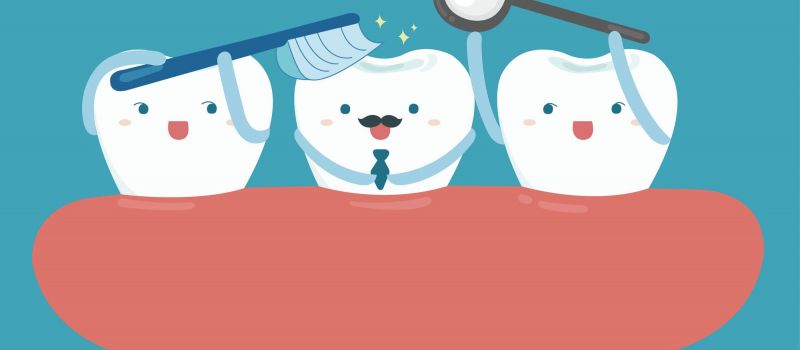Nutrition for healthy teeth and gums
By Canada Cloud Pharmacy | Published Thursday 08 April 2021

Healthy teeth make a smile more attractive. Clean, healthy, and properly aligned teeth not only look beautiful, they are also involved in more critical functions such as eating, chewing, and communicating. Healthy teeth are the entry point to your overall health, and taking care of your teeth ensures good health. Brushing, flossing, and rinsing are essential in maintaining dental hygiene. However, nutrition is equally important for healthy and strong teeth.
Which nutrients are necessary for healthy teeth?
Dental caries are common in children and adults. You may have dental decay or gum inflammation. Losing teeth due to gum diseases is a common global problem in the aged population.
Minerals:
- Calcium is the essential mineral necessary for the teeth formation and mineralization process. Another mineral, phosphate, is stored in your teeth and is involved in the calcium-magnesium balance needed for the mineralization process.
Vitamins:
- Vitamin C is necessary for maintaining gum health. It protects the tissues of the mouth from cell damage and infections. Vitamin B in the form of folic acid is essential for cell growth. Similarly, vitamin D is involved in maintaining a healthy jawbone and the overall musculoskeletal system. Its deficiency affects calcium absorption leading to several problems.
Antioxidants:
- Vitamin E and Beta-Carotene have excellent antioxidant potential and are necessary for protecting gums from inflammation.
Which type of food should I eat to get the proper nutrition for healthy teeth?
Choosing the right type of food and having a balanced diet helps in maintaining healthy teeth and gums. Here are a few tips:
-
Include foods that are rich in minerals in your diet. Fresh vegetables such as broccoli, cabbage, leafy greens such as spinach, lettuce, kale, asparagus are rich in calcium, magnesium, phosphorus, and iron.
-
Dairy products such as milk and yogurt are good sources of calcium. Cheese served as a snack or during meals help salivary secretion.
-
Fruits such as apples, pears, pineapples, strawberries are rich in vitamin C and good for gums. These also have high water and fiber content. This helps in stimulating saliva secretion in the mouth. High water content and saliva helps in flushing out the food debris that accumulates in the teeth.
-
Crunchy veggies such as carrots and celery are the natural cleaners of teeth. Their fibrous texture helps to clean teeth surfaces and remove the food lodged in the teeth. Moreover, they stimulate the salivary secretion and help in moistening the mouth. This helps to get rid of the cavity-causing bacteria that stay on the teeth.
-
Include healthy snacks such as nuts in your everyday diet. Walnuts, almonds, and cashews are rich in calcium and vitamin D. They also help keep teeth clean and promote enough saliva production.
-
Meat and fatty fish are good for teeth. While meat increases saliva, fatty fish protects the enamel.
A good diet that provides optimal nutrition is good for teeth and gum health. Dentists may also recommend some calcium and vitamin supplements if they notice a deficiency.
Drink plenty of water; it helps keep the oral cavity clean. Avoid sugary, sweetened, and sticky food items that stay on your teeth for a longer time, giving bacteria a chance for infection and tooth decay. Besides a healthy diet and proper brushing and flossing practices, visit a dentist for a regular dental examination.



 Canadian Company
Canadian Company 



 Sign In
Sign In
 Home
Home 
 About Us
About Us 
 How to order
How to order 
 Products
Products 



